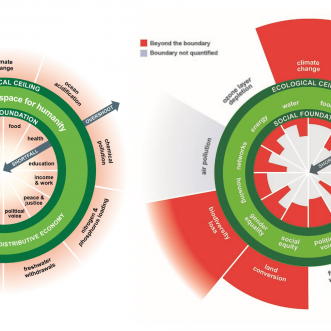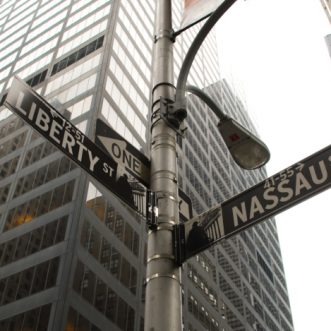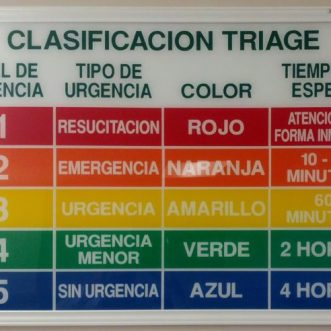
Measuring what really matters
Today the ICAEW is calling for accountants to rally to the cause of sustainable cost accounting: “All stakeholders have to … Read More “Measuring what really matters”

Today the ICAEW is calling for accountants to rally to the cause of sustainable cost accounting: “All stakeholders have to … Read More “Measuring what really matters”

By convention, everyone inside a business tracks the boss. Orders come down from on high, performance data is sent back up the line to the top. Orders are adjusted and sent back down again. New performance data is sent back up the line. And so on.
Who does the boss track? In a public company, it’s often the share price. The opinion of the financial markets, of potential traders in those shares – not investors, they rarely hold shares long enough to be truly investors.
What if everyone in the business tracked the people they serve instead?
They’d be powered by a completely renewable energy that’s also sustainable and efficient.

In an earlier post, I asked why it’s deemed important to report on the FTSE 100 index at every news on the radio, and what relevance that index has for most ordinary people.
There are alternative things to measure, that matter more to most people, and I think Kate Raworth’s doughnut pretty much captures them all.
What if instead of the FTSE, we had a daily snapshot of our impact as a nation on overshooting the ecological ceiling, or undershooting the social foundation? What if we could see every day how well we are doing at keeping within “the safe and just space for humanity”.
Like the FTSE and other indices, this snapshot would be made up of data from millions of enterprises large and small across the country, and that means that each enterprise would need to measure it’s own impact too.
That’s completely doable, if we set our mind to it, with the help and support of our accountants.
Why wait? Let’s start now.

Enfranchisement: verb (used with object), en·fran·chised, en·fran·chis·ing.
Franchising creates a business within a business, where the management of a branch of the original business is outsourced to a third party, who pays for the privilege.
Franchising works because it balances autonomy with responsibility. If I buy a franchise, I own that business, I get to keep most of the profit, I manage my branch as I see fit. At the same time I have a responsibility to the parent business and my fellow-franchisees to maintain and even enhance the brand.
For this reason, good franchisors recognise that they need to communicate ‘how their business works’ to franchisees. Not just technical stuff, such as how to put together a pizza or prescribe a pair of glasses, but the customer experience stuff too. Sometimes, if my potential franchisees are unlikely to be business owners already, even how to monitor business performance. Then they let the franchisee get on with it.
A good franchise takes a lot of effort to set up, but once set up it is relatively straightforward and quick to replicate and expand. Done properly, franchising is a brilliant way to grow a business without killing yourself in the process.
It’s possible to give yourself a head start.
Enfranchise the people inside your business first.

For the last 260 years or so we’ve behaved as if we live in a world of infinite physical resources. We don’t, obviously.
But that doesn’t necessarily mean a ‘no-growth’ future. It just means finding a different, less damaging kind of growth.
If the things people really want, beyond food, shelter and family are agency, mastery, autonomy, purpose and community – personal growth and development – then we will never run out of opportunities to grow these things, just as we will never run out of opportunities to ensure everyone is fed, sheltered and cared for properly.
Plenty of scope for human ingenuity I would have thought.

One key way to reduce the volume of interruptions you receive, is to consider before you interrupt others.
Following on from yesterday’s post, here is another simple triage:
Respecting other people’s time helps them to respect yours.

One reason why we can feel overwhelmed at work, is that we don’t use triage enough.
Simple triage for unexpected client phone calls and emails:
Every customer has top priority. That needs managing.

Once people had seen a wheel, they didn’t have to invent it. They used it to improve a process – moving heavy things, hunting, war, playing.
Once people in England had seen a brick house, they didn’t have to invent it. They used it as a model for building new, bigger, more comfortable houses. Then they used it as a model to build more comfortable and permanent houses for more people.
Once people saw the internet, they didn’t have to invent it. They used it to re-invigorate old processes – shopping, talking, sharing information.
Once you have a process for doing something, you don’t have to invent it. You can build on it to regenerate old processes you want to keep, or to create new processes that were not possible before. You can use it to come up with a much better version.
Our civilisation is built on streamlining processes to make room for inventing new ones.
Many people see ‘process’ as restrictive, stultifying, oppressive.
That’s not because it’s process, it’s because people are inventing the wrong things.

For many in the business world, especially in the financial world, better is simply a synonym for bigger. Growth of profits is all. What else could better mean for business?
Well, it could mean making better things, things that are useful as well as profitable. Things that are not harmful to the people who buy them.
It could mean making things in a better way, with more care for the resources that go into them and the effects, unintended or otherwise, that arise from the use of these resources. It could mean finding ways of making things that re-use resources, so no further damage is done. It could mean making things that undo some of the damage already done. It could even mean creating positive, intended side-effects that make the whole environment better.
It could mean making things that give the people buying more of what they really want – agency, mastery, autonomy, purpose and community – which might mean making fewer things, and more opportunities for people to get together and achieve these ends for themselves.
It could mean giving the people making things more of what they really want – agency, mastery, autonomy, purpose and community, so that they can live richer lives at work, and at home.
This is growth, but not as we know it. Enrichment, rather than accumulation. Better, not merely bigger.
The good news is this kind of growth is unlimited. Better makes bigger sustainable.

What’s your gift? The thing you can do better than anyone else. The thing you can’t help but do, even though it’s not what you get paid for?
Perhaps you feel guilty about wanting to be paid for using your gift on behalf of others. Perhaps the people you’ve met so far don’t value it, so you assume nobody will.
It seems to me that for the moment at least, life is about finding a balance between exercising ones talents, and making enough money to live on, and there are at least two ways to achieve this.
Option 2 is always worth trying, because the worst that can happen is that you’re back to option 1, but the potential upside is that you get paid handsomely by people who appreciate your gift – perhaps even handsomely enough that you can give some of it away to those less fortunate.
Leverage doesn’t have to be selfish.
Thanks to the cool women at this morning’s Like Hearted Leaders for prompting this thought.